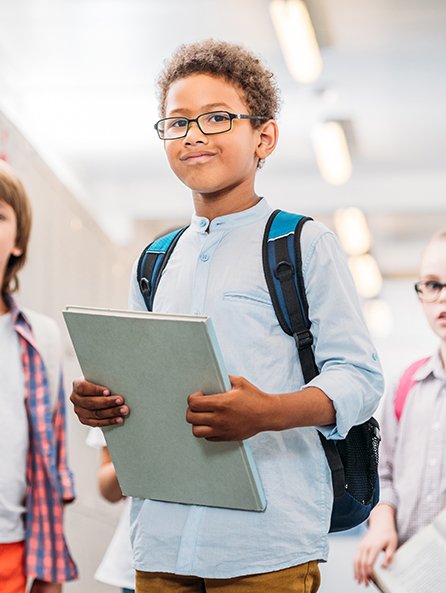In the vibrant archipelago of the Philippines, where the sun kisses the sea and the air hums with the rhythm of daily life, the education system stands at a crossroads. The Philippine education system has long been a beacon of hope for many families, a promise of a brighter future through knowledge and skill. Yet, beneath the surface, challenges loom large, threatening to undermine the very foundation upon which dreams are built. As parents, educators, and community members, the urgency to address these issues has never been more pressing. The future of our children depends on the actions we take today.
The Current State of Philippine Education
The Philippine education system faces a multitude of challenges that hinder the academic success of its students. According to the Philippine Business for Education (PBEd), the country ranks near the bottom in international assessments such as PISA 2018 and TIMSS 2019, particularly in reading, mathematics, and science. These results are not mere statistics; they represent the struggles of millions of Filipino children striving to learn amidst adversity. The COVID-19 pandemic exacerbated these issues, with over a million students not attending school and one in four parents reporting that their children were not learning effectively. This crisis calls for immediate and comprehensive action to ensure that every child receives the education they deserve.
Building Academic Success: Strategies for Parents and Educators
Academic success is not solely determined by grades but by a child’s ability to think critically, solve problems, and apply knowledge in real-world situations. To foster these skills, parents and educators must collaborate to create an environment that promotes active learning. Encouraging curiosity, providing access to diverse learning materials, and supporting extracurricular activities can ignite a child’s passion for learning. Moreover, personalized learning approaches that cater to individual strengths and weaknesses can help bridge the achievement gap. In the context of the Philippine education system, where resources may be limited, innovative solutions such as community-based tutoring programs and digital learning platforms can make a significant impact.
Enhancing Social Skills: The Role of Communication and Collaboration
In a world increasingly connected yet often divided, social skills are paramount. The ability to communicate effectively, collaborate with others, and navigate social complexities are essential for personal and professional success. Schools play a crucial role in developing these skills by fostering inclusive environments where students can engage in group activities, discussions, and projects. Parents can complement this by encouraging their children to participate in community events, sports, and other social gatherings. The Philippine education system has recognized the importance of these skills, integrating them into curricula and promoting programs that emphasize teamwork and empathy. However, the full potential of these initiatives can only be realized when supported by active participation from families and communities.
Resilience: Preparing Children for Life’s Challenges
Resilience is the ability to bounce back from setbacks, adapt to change, and keep going in the face of adversity. In the Philippines, where natural disasters, economic challenges, and social issues are prevalent, teaching children resilience is not just beneficial – it is essential. Schools can incorporate resilience training into their programs by teaching coping strategies, stress management techniques, and the importance of a growth mindset. Parents can reinforce these lessons at home by modeling positive behaviors, encouraging perseverance, and providing emotional support. The Philippine education system has made strides in this area, but the collective effort of educators, parents, and communities is needed to build a resilient generation capable of overcoming any obstacle.
Addressing Mental Health: A Critical Component of Education
The mental health of students is a critical yet often overlooked aspect of education. The pressures of academic performance, social expectations, and personal challenges can take a toll on a child’s well-being. In the Philippine education system, efforts are being made to integrate mental health support into schools, including counseling services and mental health awareness programs. However, stigma and limited resources continue to impede progress. It is imperative that mental health is treated with the same seriousness as physical health, with adequate support systems in place to assist students in need. Parents and educators must work together to create an environment where children feel safe to express their emotions and seek help when necessary.
Leveraging Technology: Tools for Modern Education
In the digital age, technology has the potential to revolutionize education. Online learning platforms, educational apps, and digital resources can supplement traditional teaching methods, providing students with a wealth of information and interactive learning experiences. In the Philippines, where access to technology can be uneven, initiatives to bridge the digital divide are crucial. Community centers, libraries, and schools can serve as hubs for digital learning, offering access to computers and the internet for students who lack these resources at home. The Philippine education system must continue to invest in technology infrastructure and training to ensure that all students can benefit from the opportunities that technology affords.
Community Involvement: Strengthening the Support Network
Education is not solely the responsibility of schools; it is a community endeavor. Parents, local organizations, businesses, and government agencies must collaborate to create a supportive network that nurtures the academic, social, and emotional development of children. Community involvement can take many forms, from volunteering in schools to supporting local educational initiatives and advocating for policy changes. In the Philippine education system, community engagement has proven to be a powerful force for positive change, leading to improved student outcomes and stronger communities. By working together, we can ensure that every child has the opportunity to succeed.
Policy and Reform: Advocating for Systemic Change
While individual efforts are vital, systemic change is necessary to address the root causes of the challenges facing the Philippine education system. Advocacy for policy reforms that prioritize education funding, teacher training, curriculum development, and infrastructure improvement is essential. Organizations such as the Philippine Business for Education (PBEd) are leading the charge in advocating for evidence-based policies that can transform the education landscape. Public support and active participation in these advocacy efforts can drive the changes needed to create an education system that serves all children equitably and effectively.
Conclusion: A Call to Action
The challenges facing the Philippine education system are formidable, but they are not insurmountable. By working together – parents, educators, students, and communities – we can build an education system that fosters academic success, develops social skills, and cultivates resilience in our children. The time to act is now. Every day that passes without meaningful change is a missed opportunity to shape a better future for our children. Let us not wait for the perfect moment; let us create it. Join the movement to transform education in the Philippines. Advocate for change, support local initiatives, and invest in the future of our children. Together, we can make a difference.







